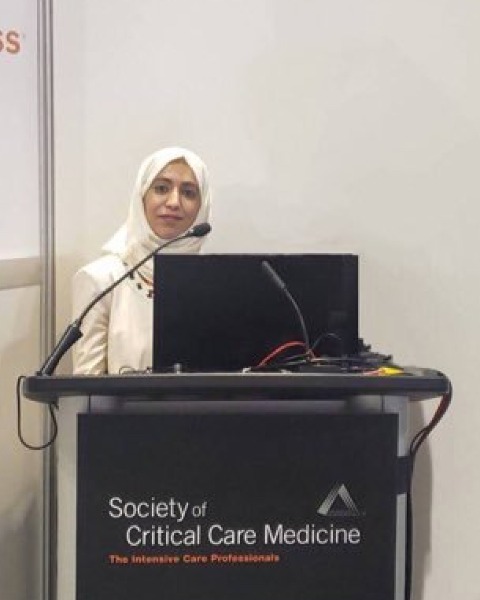An Unusual Stroke Etiology: Delayed Cerebral Vasospasm
-

Alyaa Al Ali, MD
Pediatric intensivist
Sheikh Khalifa Medical City
Abu Dhabi, United Arab EmiratesDisclosure information not submitted.
-
ma
musaab al ramsi, MD
Pediatric Intensivist- Division Chief
Sheikh Khalifa Medical City, United Arab EmiratesDisclosure information not submitted.
First Author(s)
Co-Author(s)
Title: An unusual stroke etiology: Delayed cerebral vasospasm
Case Report Body:
Introduction: Symptomatic cerebral vasospasm is well described with subarachnoid hemorrhage and traumatic brain injury. However, it is rarely reported after brain tumor resection and is even rarer after posterior fossa tumor surgeries. It can be easily mistaken for other issues such as cerebral edema, infection, or surgical injury. Timely diagnosis and treatment are extremely important for the patient's outcome and prognosis.
Description: A previously healthy 8-year-old girl presented to ED with history of recurrent vomiting, ataxia, and severe headache for 3 months. An urgent MRI demonstrated posterior fossa lobulated mass with significant obstructive hydrocephalus. She underwent posterior fossa craniotomy and decompression of the brainstem. Post-operative course was uneventful. The biopsy confirmed pilocytic astrocytoma. After 1 week, she underwent further brainstem decompression and removal of the residual tumor. Post-operative course was complicated by depressed level of consciousness. An urgent MRI within 24 hours was unremarkable, and showed no evidence of obvious residual mass. Despite neuroprotective measures, her neurological status continued to decline, with noticeably weak brain stem reflexes and absent patient-triggered breaths. A follow up MRI revealed bilateral cerebral parenchymal watershed infarctions affecting the frontal, parietal, and occipital lobes. An MRA showed progressive narrowing of the supraclinoid internal carotid arteries, MCA, and ACA bilaterally, suggestive of cerebral vasospasm. Multidisciplinary team decision was to continue conservative management. She had a prolonged ICU stay and underwent tracheostomy. She was ultimately transferred to a rehabilitation center for intensive physiotherapy. The follow up demonstrated a score 5 of Modified Rankin Scale severe disability.
Conclusion: Delayed cerebral ischemia caused by vasospasm after intracranial tumor resection is extremely rare in children. A high index of suspicion is required to establish timely diagnosis and avoid misguided therapy. Early aggressive management such as triple-H (hypervolemia, hemodilution, and hypertension) therapy, calcium channel blockers and endovascular interventions may prevent disease progression.
